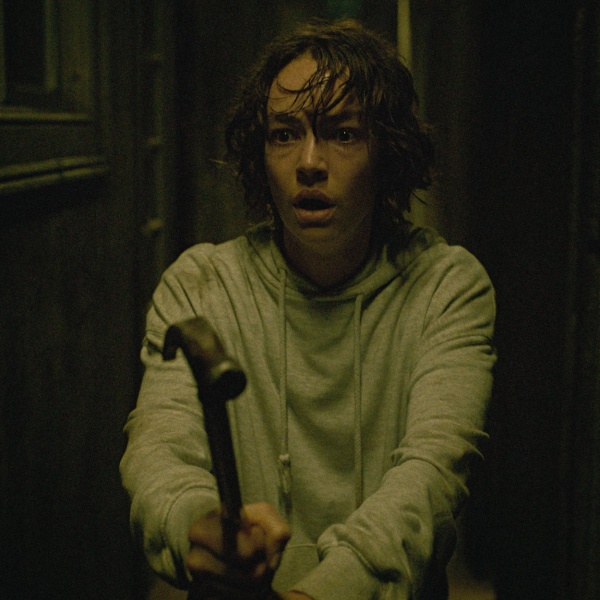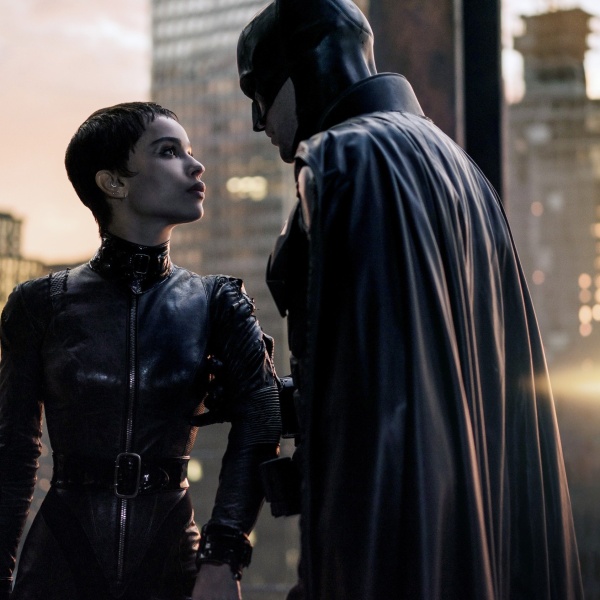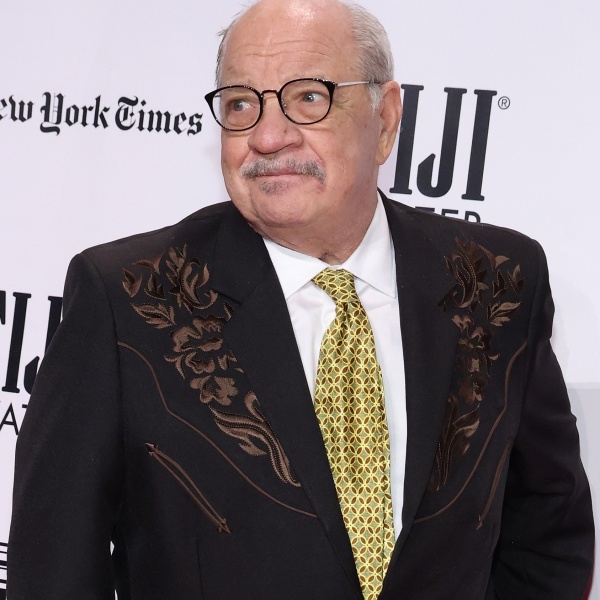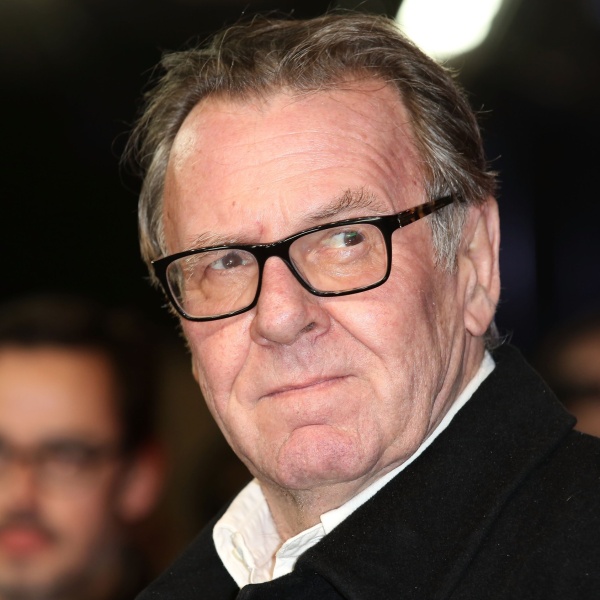Cillian Murphy first cut his teeth at the Corcadorca Theatre Company in his hometown of Cork, Ireland at the age of 20, where he nailed the audition for his first acting role in Enda Walsh’s “Disco Pigs” play. Murphy made enough of an impression to not only land the role for the theater part, but he also starred in the film adaptation years later. Although the movie wasn’t necessarily a renowned success, his performance caught the eye of Danny Boyle: the legendary filmmaker, then searching for a lead in his post-apocalyptic thriller, “28 Days Later.” That movie would significantly boost Murphy’s profile, earning him nominations for Best Newcomer at the Empire Awards and Breakthrough Male Performance at the MTV Movie Awards.
With 40 movies and 27 years to his career, Murphy seems to be progressing with each appearance, and his latest role was his biggest yet. As the titular physicist and “father of the atomic bomb” J. Robert Oppenheimer in last year’s massive blockbuster “Oppenheimer,” Murphy netted his first career Oscar nomination and looks to be a major contender for the win. His sixth collaboration in a 20-year relationship with Christopher Nolan, the “Oppenheimer” actor jumped at the opportunity to star in his first lead role for the filmmaker, who took Murphy under his wing early in his career.
“Out of the blue, he called me up and said ‘I’d like you to play Oppenheimer,’” Murphy said to Deadline. “You have a few of those great days in your life as an actor, which you’ll never forget and that was one of them. It’s a huge responsibility.”
Murphy was also considered to play Oppenheimer in the short-lived 2014 TV series “Manhattan,” but was passed up for Daniel London — allowing Murphy to properly nail the role nine years later. The series centered on Frank Winter, a physics professor leading the Manhattan Project in the New Mexico town of Los Alamos: a character that didn’t make the cut in Nolan’s version of the story. From supervillain to terrorist assassin and WWll physicist, there is no character Murphy has away shied from.
In celebration of Murphy’s Oscar nomination, IndieWire has updated our list of his greatest roles. Read on for the 12 best Cillian Murphy performances, ranked.
With editorial contributions by Alison Foreman, Ryan Lattanzio, and Christian Zilko.
-
12. “Intermission” (2003)

Image Credit: ©IFC Films/Courtesy Everett Collection Who Cillian plays: John, a kleptomaniac supermarket employee who recently separated from his girlfriend Deidree (Kelly Macdonald). John Crowley’s “Intermission” follows John as he attempts to win Deidree back and gets revenge on her new boyfriend by robbing the bank he works at, while also following their loose circle of friends as they get into various misadventures.
Why he’s great: “Intermission” is a film that’s bigger than one star in its cast, but Murphy’s performance as John is one of the clear highlights. He gets to showcase his comedic chops — a rarity in his career of typically grim films — and proves a lovable disaster of a romantic hero. His big scene where he finally admits how much Deidree means to him is the film’s most heartfelt moment, and a perfect demonstration of his ability to play the swoony romantic hero. —WC
-
11. “Disco Pigs” (2001)

Image Credit: Courtesy Everett Collection Who Cillian plays: Darren “Pig,” the violent-natured teenager of a single mother who finds his equally-troubled match, Sinéad “Runt,” living next door to him, a destructive combo that makes rampage constantly within reach.
Why he’s great: The anger and rage-filled character shows the darker side of passion that can hurt more than just emotionally. The plausibility of Murphy’s morally-detached performance brings the most extreme case of possessive jealousy to light, well illustrating Pig as a crazy boyfriend you’d want to avoid. —MF
-
10. “Dunkirk” (2017)

Image Credit: ©Warner Bros/courtesy Everett Collection / Everett Collection Who Cillian plays: One of the many soldiers scarred by the events of World War II’s Dunkirk evacuation. In his fifth movie with Christopher Nolan, Murphy’s character goes unnamed, but proves to be the lynchpin of the film’s “at sea” portion. The sole survivor of a U-boat attack that killed the rest of his crew, Murphy’s soldier is rescued from drowning by civilian sailor Mr. Dawson (Mark Rylance), his son Peter (Tom Glynn-Carney), and Peter’s friend George (Barry Keoghan). But the attack clearly gave him intense shellshock, and he soon butts heads with the crew as they attempt to sail toward and assist the soldiers at Dunkirk.
Why he’s great: For “Dunkirk,” Murphy did research into Post Traumatic Stress Disorder in order to accurately portray his character and the mental scars that the Dunkirk evacuation had on him. His character feels like a dead man walking, with a haunted thousand-yard stare and a nervous energy that makes him an unpredictable and unreadable presence. In a film where the individual performances are less important than the collective whole, Murphy’s is the clear standout. —WC
-
9. “A Quiet Place Part II” (2020)

Image Credit: ©Paramount/Courtesy Everett Collection Who Cillian plays: In John Krasinski’s follow-up to his smash hit original, the filmmaker and former star slowly expands the reach of his story outward. With Krasinski’s Lee Abbott gone (he does, however, appear in a flashback that also introduces Murphy’s Emmett), Murphy takes on the role of male lead, with an emotional twist. While the Abbotts have lost their patriarch, Emmett has lost his entire family, and he’s understandably hardened by the hand dealt to him by the baddie alien invaders and everything that came after. But there’s hope in this story, and when Emmett reunites with the Abbotts, he begins to see a way forward.
Why he’s great: Murphy is obviously aces at the brooding, world-weary act, but Krasinski’s idea to give us pre-invasion Emmett in that flashback allows Murphy to also share a warm, loving side, which makes his current situation all the more heartbreaking. Murphy never goes over the top, of course, approaching Emmett with an understandable fury and a growing sense of hope that forces him to take action in increasingly surprising ways. —KE
-
8. “Batman Begins” (2005)

Image Credit: ©Warner Bros/Courtesy Everett Collection Who he plays: The villain introducing us to Christian Bale (and Christopher Nolan’s) take on The Caped Crusader, Dr. Jonathan Crane — also known as The Scarecrow — makes “Batman Begins” Murphy’s movie. Yes, the actor was originally considered for the role of Bruce Wayne before Nolan settled on Bale; Murphy even wore the campy Val Kilmer costume from 1995’s “Batman Forever” to his audition. But despite not being right for the starring role, Murphy so impressed Nolan that the director worked extensively with the actor to make Scarecrow into a revolutionarily grounded supervillain, who chilled modern audiences and laid the groundwork for Todd Field’s “Joker,” “The Batman” (2022), and Heath Ledger’s Oscar-winning turn in Nolan’s sequel, “The Dark Knight,” of course.
Why he’s great: There’s the theatrical awfulness of Murphy’s Scarecrow (the dude sets Batman on fire), but Murphy really makes the role his own with a calculating manipulation and twisted fascination with human nature that’s held tight behind his eyes. Those reserved calculations bumps against the movie’s horrifying hallucinogen sequences to spectacular effect, and in his final showdown with Batman (you know, sequel appearances notwithstanding), Murphy’s Scarecrow becomes a larger-than-life rendition of a character often overlooked by non-comic fans and newly beloved thanks to Murphy’s spin on the persona.
“I didn’t expect to come back,” Murphy said to GQ in 2020. “It was wonderful fun to reprise a character. Up to that point, I’d never reprised a character. There was a joke on set that he’s the character who refused to die. He’s still alive! Out there, somewhere.” —AF
-
7. “Inception” (2010)

Image Credit: ©Warner Bros/Courtesy Everett Collection Who Cillian plays: Robert Fischer, the heir to a wealthy businessman who is targeted by his father’s competitor, Saito, and his dream-invading goons, Cobb and Arthur, who are hired to tap into Fischer’s subconscious and extract information.
Why he’s great: Although Murphy’s character is a man of few words, the audience feels the calloused emotion of Fischer, whose daddy issues are typically shut off from the real world but poured out in the dream realm. The amount of pressure on his character living in the shadow of his father makes the audience sympathize with the devoted son, even in our modern eat-the-rich era. —MF
-
6. “Red Eye” (2005)

Image Credit: ©DreamWorks/Courtesy Everett Collection Who Cillian plays: Just before she boards a flight from Dallas to Miami, hotel manager Lisa (Rachel McAdams, also great) meets a charming stranger named Jackson Rippner (Lisa!! come on!), so imagine her delight when the pair are seated next to each other on the flight. And yet, soon enough, Wes Craven’s natty little chiller starts laying its card on the table, just like Jackson (Murphy) who is not some smooth-talking mystery man, but an international terrorist hellbent on using Lisa’s access to assassinate a government official currently staying at her hotel. It’s an ingenious idea for a cat-and-mouse game — the pair trapped next to each other for hours upon hours, before busting free of the plane in heart-stopping fashion — and Murphy makes a meal out of the terrifying, and occasionally hilarious, role.
Why he’s great: Murphy’s best roles capitalize on his ability to slide between charm and menace, seemingly on a whim, and Jackson Rippner might actually be the best example of this kind of performance. Jackson has to charm Lisa — and us — before showing his cards and scaring the crap out of her — and us!! — in the process. Few actors can so seamlessly move between being alluring and scary, sexy and terrifying, and Murphy uses every frame of Craven’s film to tap into those wily abilities. —KE
-
5. “Sunshine” (2007)

Image Credit: ©Fox Searchlight/Courtesy Everett Collection Who Cillian plays: Murphy is always making the case for being one of the most beautiful men on Earth, but in Danny Boyle’s 2007 “Sunshine,” he’s not on Earth. In fact, he’s on a spacecraft hurtling toward a last-ditch effort to save the Sun from a looming star death. Murphy plays Robert, the physicist head of the operation and the only one who knows what a suicide mission this really is for all involved.
Why he’s great: Ever-committed to verisimilitude in a performance revolving around science, Murphy spent time with actual physicists in preparation for the role, learning their mannerisms and the psychology that goes into playing a brainy outsider. It’s a brilliantly subdued performance and one Murphy so immersed himself in that he said he pivoted from agnosticism to atheism after production was completed. “Sunshine” is, after all, about something holy, but the answers aren’t good. At the end of the movie, he is alone, facing a cosmic totality. —RL
-
4. “The Wind That Shakes The Barley” (2006)

Image Credit: Everett Collection Who Cillian plays: Damien O’Donovan, a young doctor from the same region Murphy originates, becomes a soldier of the Irish Republic, and defending the country’s independence from Britain.
Why he’s great: Murphy’s character, Damien, is driven by a sense of duty and admiration for his country that is so deep he abandons his medical practices to join his brother, Teddy, on the long bloody road to freedom. A display of grit and patriotism throughout his performance, Damien stands his ground following the Anglo-Irish Treaty that only granted partial independence from Britain leading to the Irish Civil War which lands him on the opposing side of his brother, who is willing to settle for the offer. The emotion in Murphy’s acting and willingness to look past family ties to uphold his beliefs adds to the character’s sentiment. —MF
-
3. “28 Days Later” (2002)

Image Credit: ©20thCentFox/Courtesy Everett Collection Who Cillian plays: Jim, a British bicycle courier. After an accident on the job, Jim ends up in a coma — and wakes up, you guessed it, 28 days later to an apocalypse. A highly contagious virus has spread through the country turning them into fast-moving infected killers, and a confused Jim is left fighting for his life and searching for safety.
Why he’s great: For most audiences, “28 Days Later” is how they were first introduced to Murphy’s big blue eyes — and in his nude introduction, the rest of his body parts. Bold first impression aside, Murphy immediately establishes himself as a compelling screen presence through his raw, no-frills performance as Jim, who starts out helpless but slowly grows into a hero through his experiences. In many of the actor’s films, his striking looks are used to distance him from the audience, to play someone unknowable and slightly inhuman. But in “28 Days Later,” he’s an everyman, and his Scream King performance shows how his signature intensity can be used for any part. —WC
-
2. “Peaky Blinders” (2013-2022)

Image Credit: ©Netflix/Courtesy Everett Collection Who Cillian plays: Tommy Shelby, a war hero who runs powerful street gang Peaky Blinders, vying for control of 1919 London. The six seasons of “Peaky Blinders” follows Tommy as he wrestles to gain influence over London, while frequently facing tragedy in the process.
Why he’s great: “Peaky Blinders” is famously gritty, sometimes to a fault. But Murphy’s work with Christopher Nolan makes him an expert at grounding almost operatic levels of grimdark, and he fits the part of the icy, cold-hearted, and stoic Tommy like a glove. Murphy plays the character with great subtly, finding the layers to Tommy throughout six seasons that make him more than just another TV anti-hero. His understated performance makes the moments when Tommy succumbs to despair — or erupts in violence — all the more volatile and shocking. —WC
-
1. “Oppenheimer” (2023)

Image Credit: ©Universal/Courtesy Everett Collection Who Cillian plays: J. Robert Oppenheimer, the director of the Manhattan Project who oversaw the development of the atomic bomb before spending his life advocating against its use.
Why he’s great: Christopher Nolan’s script constantly reminds us that Oppenheimer was the most consequential human being to ever live — and regardless of whether that’s actually true, Murphy makes it abundantly clear that Oppenheimer agreed with the assessment. From his days as an ambitious physicist determined to prove his value to his later years as a world-weary elder statesman, Murphy consistently embodies Oppenheimer as a man carrying the weight of the world on his shoulders. Using little more than his piercing blue eyes, Murphy conveys Oppenheimer’s astonishment at his own intelligence until it eventually gives way to his reluctant acceptance of the shortcomings of those around him. The excessive use of Murphy’s tortured face in “Oppenheimer” marketing materials was the subject of some playful ribbing (especially when juxtaposed against the lavish “Barbie” marketing campaign), but in hindsight, it was an entirely fitting decision. The fact that Murphy’s introspective performance was enough to power a bonafide summer blockbuster is one of the most impressive acting achievements in recent memory. —CZ







